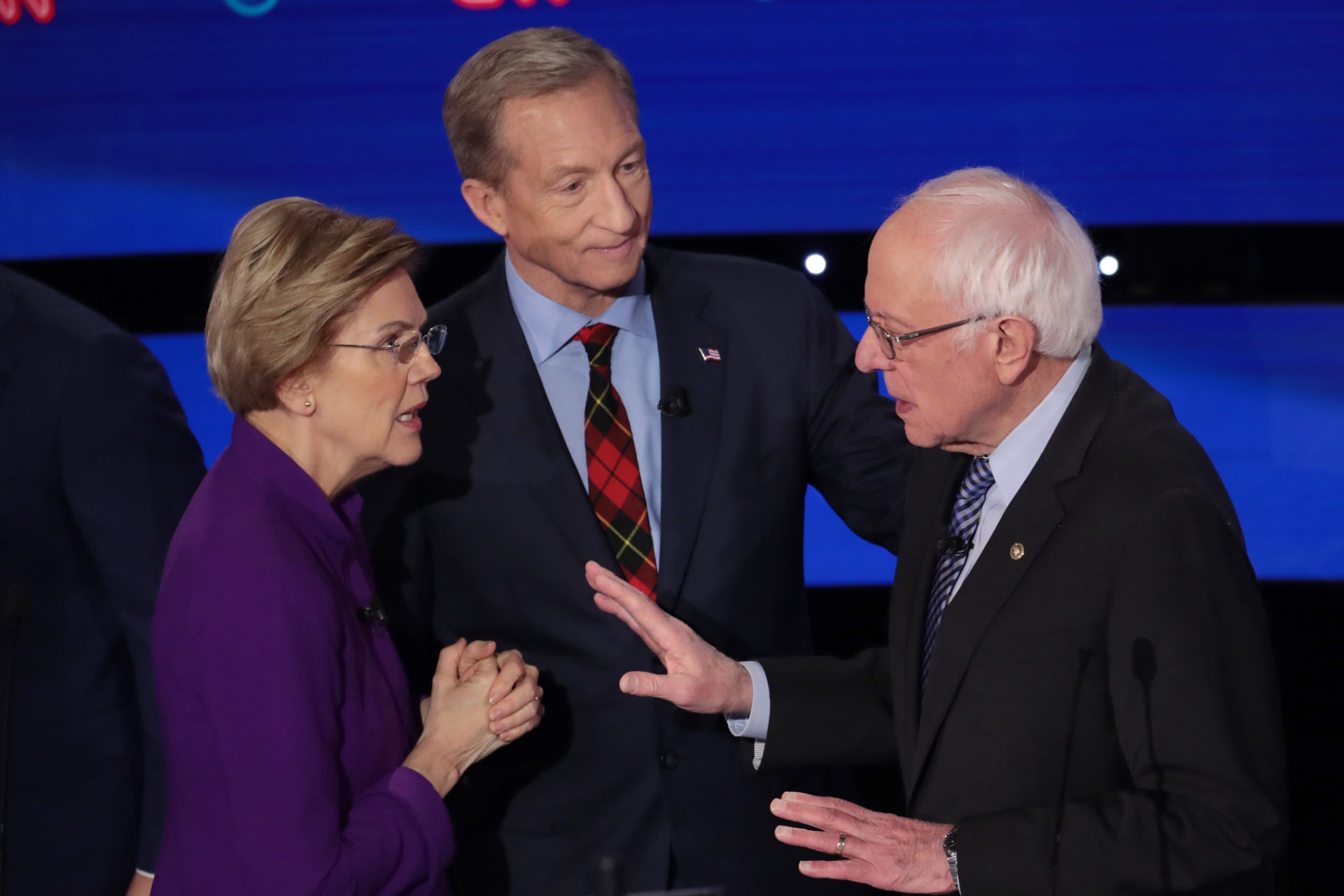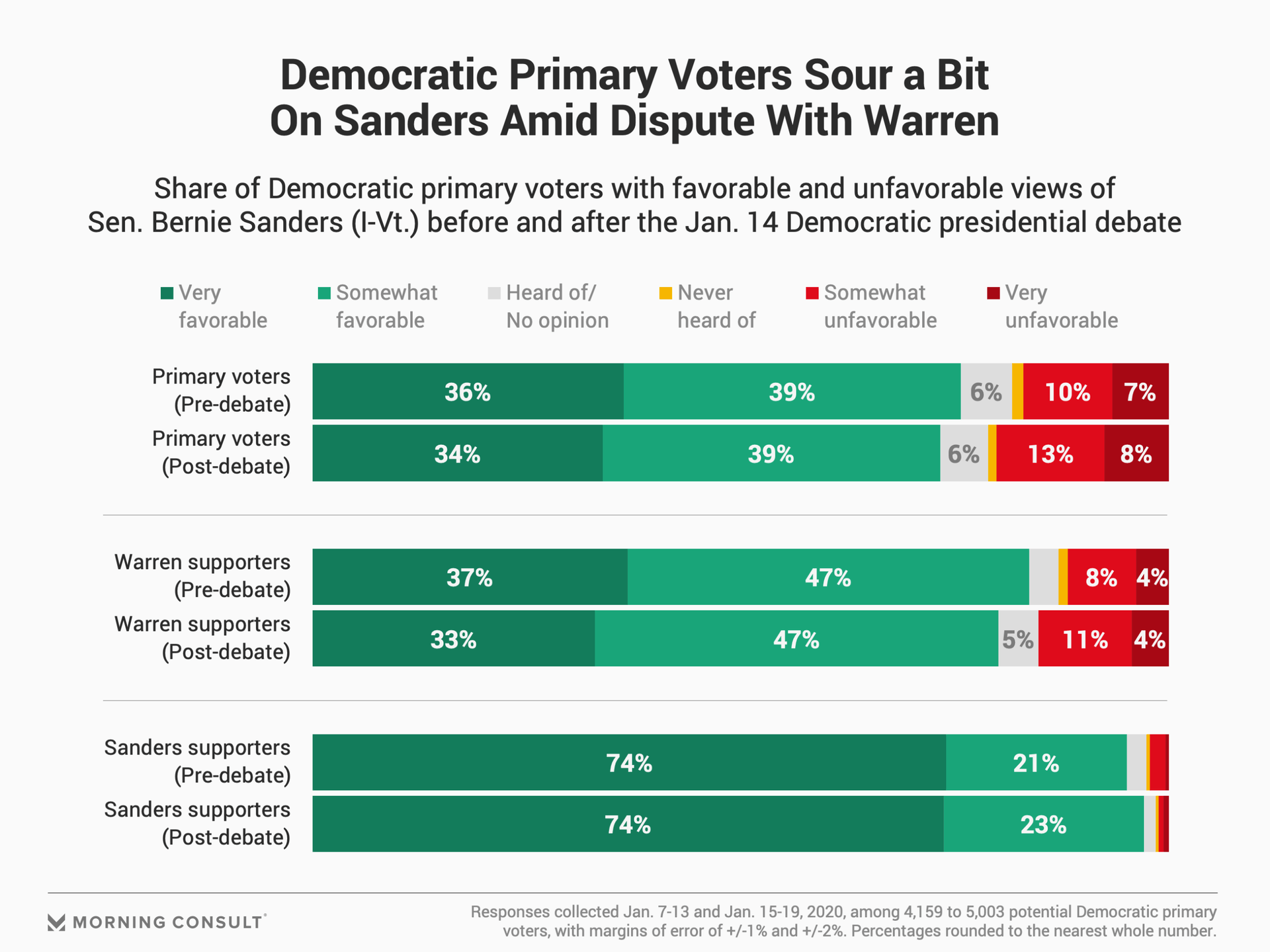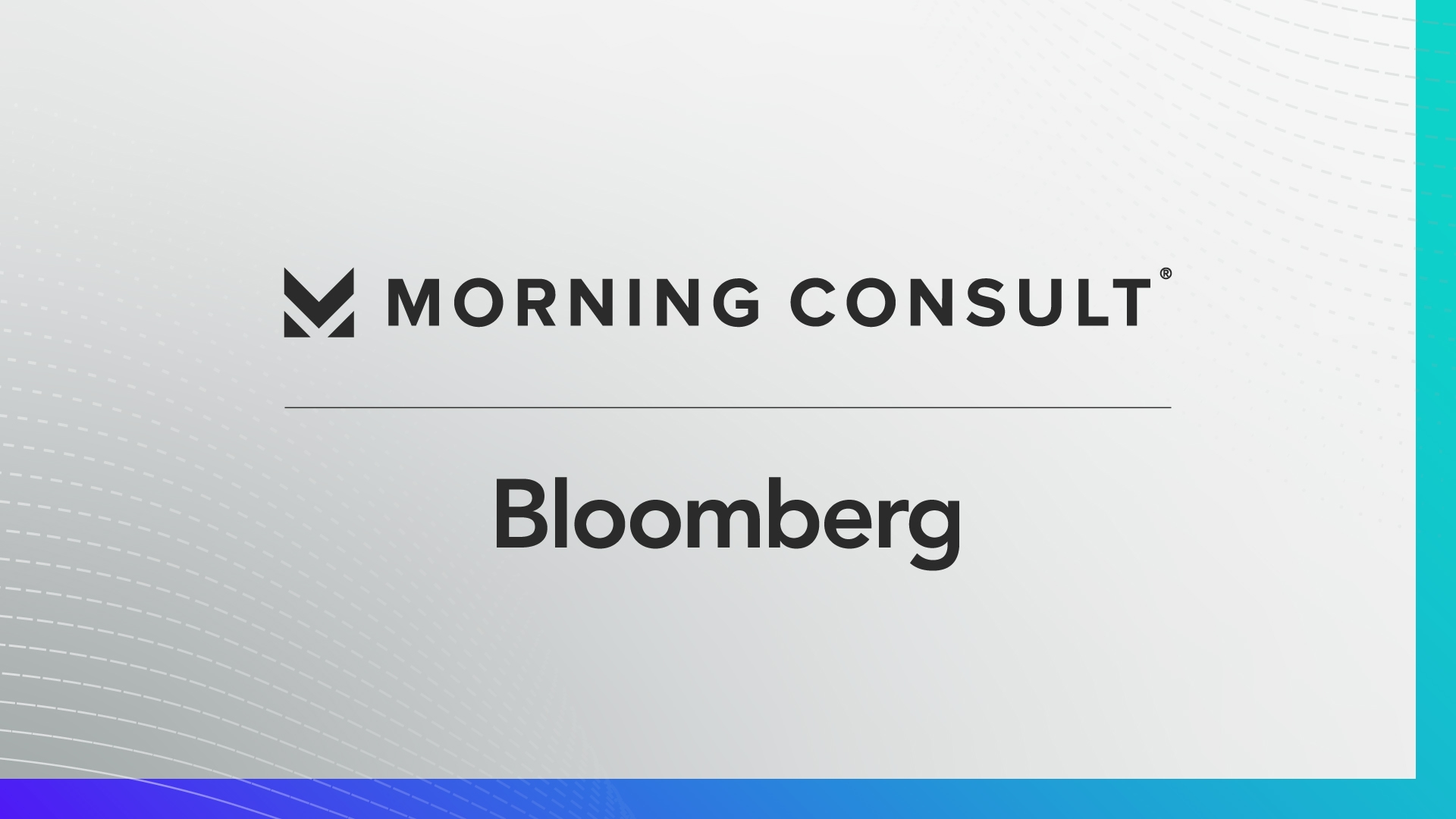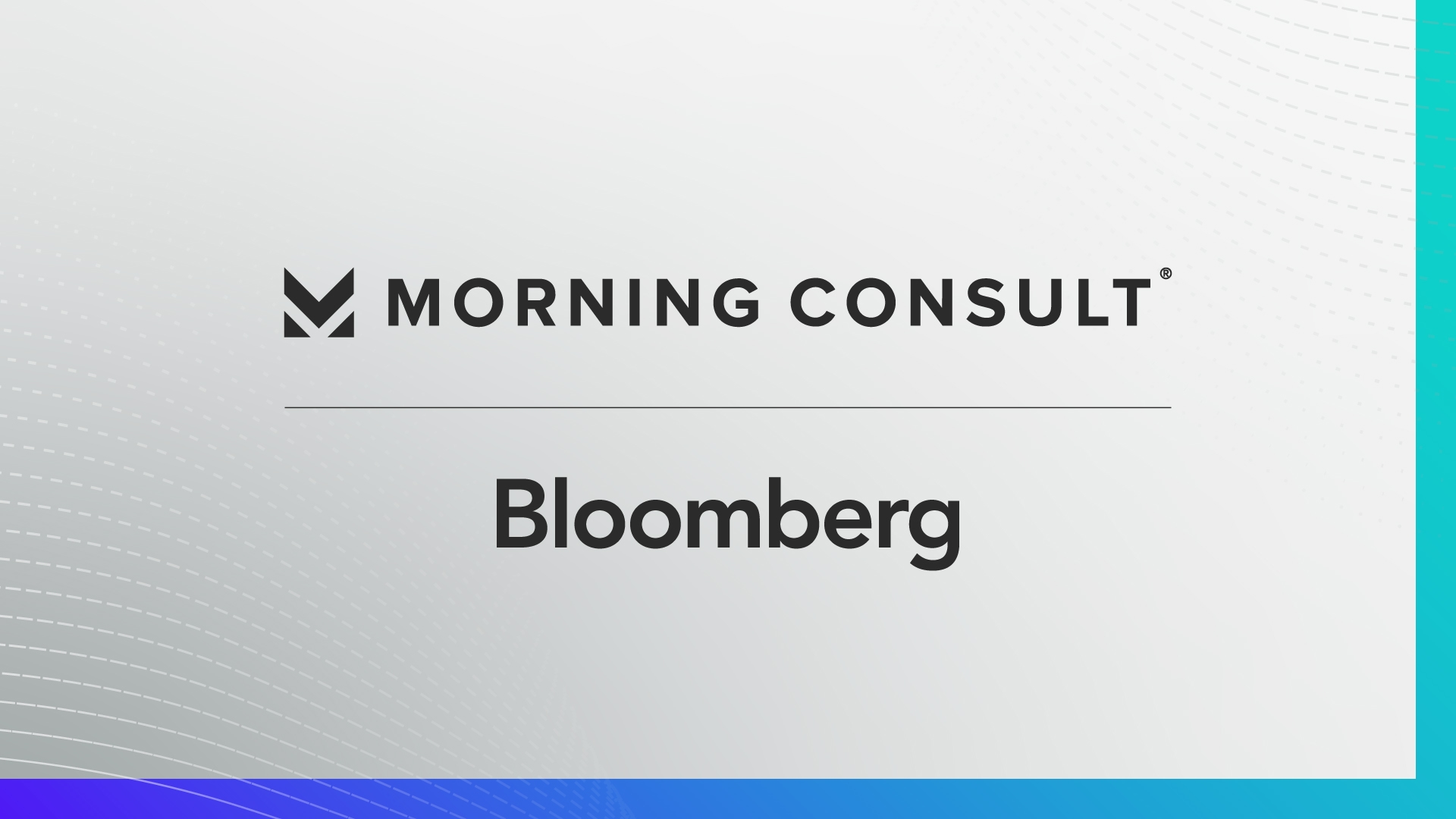Sanders’ Favorability Declines Amid Clash With Warren

Key Takeaways
Sanders’ net approval fell 6 points since the Jan. 14 presidential debate, with 73% viewing him favorably and 20% viewing him unfavorably.
There was no measurable shift in how Warren’s supporters viewed Sanders following their dispute over whether he said a woman can’t be president.
Sanders and Warren remain the second-choice candidate for each other's supporters.
Democratic primary voters’ perception of Sen. Bernie Sanders (I-Vt.) fell amid his clash with Sen. Elizabeth Warren (D-Mass.) over whether he said a woman cannot win the presidency, but it has not trickled down to their supporters.
The latest Morning Consult polling tracking the Democratic primary found Sanders’ net favorability among likely primary voters — the share with favorable views minus those with unfavorable views — fell 6 points since before his clash with Warren, but that didn’t affect his overall first-choice support outside the survey’s margin of error. Seventy-three percent of primary voters view Sanders favorably, down 3 points from the Jan. 7-13 survey, while 20 percent view him unfavorably, up 3 points in the Jan. 15-19 polling.

The data tracking the first-choice support has a margin of error of 1 percentage point, while the latest favorability data has a margin of error of 2 points.
The negative drift in views put Sanders within the margin of error of Joe Biden’s favorability rating, though the former vice president still leads him in first-choice support, 29 percent to 24 percent.
The clash between Warren and Sanders began Jan. 13, a day prior to the final debate before the Iowa caucuses, when CNN reported that Sanders had told Warren in a 2018 meeting that he did not think a woman could win the White House.
Before the debate, Sanders denied the claim, but Warren issued a statement saying the reporting was true. On stage, Sanders again denied he said a woman couldn’t win the presidency, while Warren made her case about why a woman can win. When the debate was over, a microphone captured a tense interaction in which Warren said Sanders called her a liar on national television, a tape that was a key focus of post-debate news coverage.
Notably, there was no measurable shift in how Warren’s supporters viewed Sanders following the dispute, with his net favorability number 12 points higher than the figure for the overall population of voters who indicated they would vote in the Democratic primary or caucus in their states.
The two remain the second-choice candidate for each other's supporters. Three in 10 Sanders supporters said Warren was their second choice, down 3 points from the previous week, while 37 percent of Warren supporters said Sanders was their second choice, up 3 points.
Overall, there was no statistically significant change in first-choice support before and after the debate for the candidates on the stage, though Sen. Amy Klobuchar (D-Minn.) saw a 3-point boost in second-choice vote share among Warren’s supporters following the case the Massachusetts Democrat made for a woman’s electability on Jan. 14.
Among the candidates who weren’t on the stage, former New York City Mayor Michael Bloomberg’s first-choice vote share increased 2 points among all likely Democratic voters to 10 percent, while his net favorability improved 8 points, with 54 percent expressing favorable views and 22 percent expressing unfavorable views.
Eli Yokley is Morning Consult’s U.S. politics analyst. Eli joined Morning Consult in 2016 from Roll Call, where he reported on House and Senate campaigns after five years of covering state-level politics in the Show Me State while studying at the University of Missouri in Columbia, including contributions to The New York Times, Politico and The Daily Beast. Follow him on Twitter @eyokley. Interested in connecting with Eli to discuss his analysis or for a media engagement or speaking opportunity? Email [email protected].
Related content

Morning Consult | Bloomberg News Partnership Survey: Key Issues and Ballot Performance One Year Ahead of the 2024 Presidential Election

Morning Consult | Axios Partnership Survey on Growing AI Concerns Among U.S. Adults
